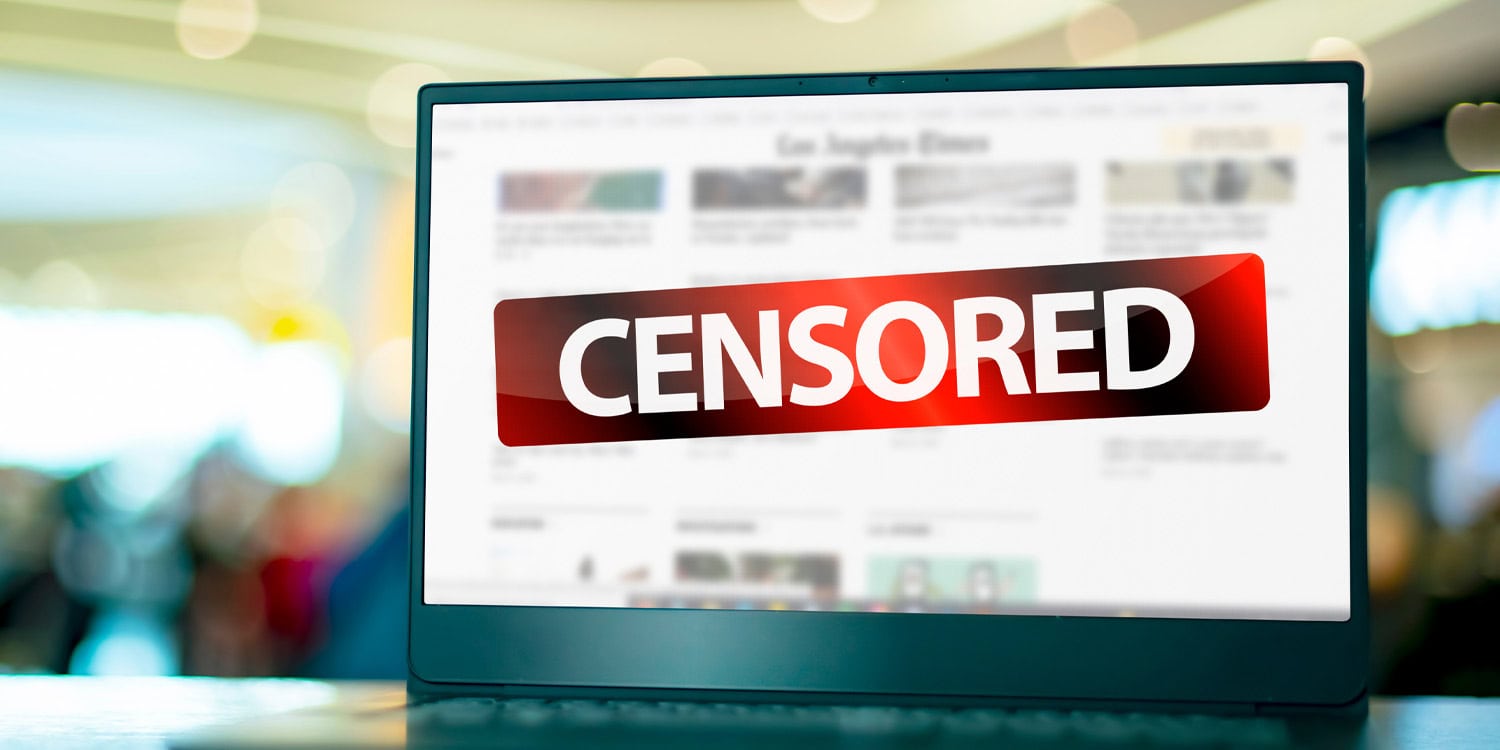A recent study has uncovered a surprising level of agreement between political parties on the issue of hate speech censorship, despite widespread assumptions of partisan division. The research, published in the Proceedings of the National Academy of Sciences, found that while Democrats generally support more censorship than Republicans, both groups tend to agree on which types of hate speech should be restricted.
Hate speech has become a prominent issue in modern society, particularly in the digital age where social media platforms can amplify harmful content. Historically, debates about what constitutes hate speech and whether it should be censored have been fraught with political disagreements. With ongoing cultural debates about free speech, cancel culture, and political correctness, understanding how partisanship influences views on censorship has significant implications for public discourse and policy.
The researchers wanted to investigate whether political divisions are rooted in genuine disagreements about which speech should be censored or whether these divisions stem from broader ideological differences on free speech versus censorship. Additionally, they sought to understand if partisans correctly perceive each other’s views on censorship or if they hold exaggerated assumptions about the other side’s stance.
“There has been a lot of media coverage about partisan disagreements regarding censorship, especially with regard to hate speech. Sometimes these disagreements are framed in terms of racial divisions. So we wanted to know if disagreements about free speech were masking attitudes toward race,” said study author Matthew E. K. Hall, the David A. Potenziani Memorial College Professor of Constitutional Studies at the University of Notre Dame, director of the Rooney Center for the Study of American Democracy, and author of What Justices Want.
The study employed an online survey experiment with a sample of 3,357 participants, carefully matched to reflect the demographic makeup of the United States in terms of age, sex, education, race, ethnicity, region, and political affiliation. Participants were quota-matched to reflect the general population’s demographics, including Republicans, Democrats, and a smaller group of Independents for exploratory purposes.
The survey was designed to present participants with a series of hypothetical social media posts, each containing potentially objectionable content. These posts varied in terms of the group targeted (e.g., Blacks, Jews, Palestinians, or Whites), the person posting (a private citizen, an elected official, or a college professor), the post’s severity (ranging from mere criticism to dehumanizing language or incitement to violence), and the poster’s political affiliation.
Participants were asked two key questions for each scenario: Would they remove the post, and would they deactivate the user’s account if they were in charge of a social media platform? Additionally, they were asked to predict how a typical Republican or Democrat would respond to the same scenarios. This allowed the researchers to compare actual censorship preferences with perceived partisan preferences.
Despite the perception that Democrats and Republicans are deeply divided on the issue of hate speech, the study found considerable cross-party consensus on which types of hate speech should be removed from social media platforms. Both Democrats and Republicans agreed that hate speech targeting Blacks and Jews should be censored more frequently than hate speech targeting Whites or Palestinians (though Democrats tended to support more censorship overall).
Specifically, 60.4% of participants supported removing posts targeting Blacks, while 58.6% supported removing posts targeting Jews. In contrast, 54.8% favored removing posts targeting Palestinians, and 54.6% supported removing posts targeting Whites.
When it came to deactivating accounts that shared hate speech, support was generally lower than for simply removing posts. Although fewer participants supported full account deactivation, similar trends emerged: participants were more likely to favor deactivating accounts that posted hate speech against Blacks and Jews compared to those targeting Palestinians or Whites.
“We found that disagreements about hate speech are not driven by racial attitudes,” Hall told PsyPost. “Republicans are generally less supportive of censoring hate speech than Democrats are. But Republicans and Democrats generally agree that hate speech targeting Blacks and Jews should be censored more than hate speech targeting Whites.”
The severity of the language used in hate speech was another key factor influencing censorship decisions. Participants were more likely to support both removing posts and deactivating accounts when the language was more extreme or violent. For example, posts explicitly calling for violence—such as “should all be rounded up and shot in the head”—were far more likely to be censored than posts containing less harmful insults, like calling a group “stupid.”
Both Republicans and Democrats showed sensitivity to the severity of the language, with support for censorship increasing as the speech became more harmful. While Democrats were more likely than Republicans to support censoring dehumanizing language, the difference between the two parties was not as large as anticipated. Both groups agreed that the more harmful the language, the more deserving it was of censorship.
The researchers found that the source of the hate speech—whether it came from a private citizen, an elected official, or a college professor—had little impact on people’s willingness to censor the speech. Both Republicans and Democrats largely appeared to agree that the identity or societal role of the person making the post did not significantly alter their decisions about removing the content or deactivating the account.
The one notable exception to this was that Democrats were more likely to support censoring posts made by elected officials. This may reflect concerns about the higher level of responsibility that public figures are seen to have when making statements, especially when those statements involve hate speech.
Although Democrats and Republicans broadly agreed on which types of hate speech should be censored, the study revealed a significant divide in how much censorship each group supported. Democrats consistently showed stronger support for both removing posts and deactivating accounts compared to Republicans, regardless of the group being targeted by the hate speech or the severity of the language used.
For instance, while both Democrats and Republicans agreed that posts targeting marginalized groups like Blacks and Jews were more deserving of censorship, Democrats were more likely to support not only removing the offensive posts but also deactivating the accounts that shared them. This pattern held true even when less severe forms of hate speech, such as derogatory remarks without calls for violence, were involved.
One of the most striking findings of the study was the disconnect between how partisans perceived the other side’s views on censorship and the reality. Both Democrats and Republicans misjudged the other party’s positions on hate speech censorship, contributing to ongoing political polarization around the issue.
Democrats tended to overestimate how much Republicans would favor censoring hate speech targeting Whites and underestimated Republican support for censoring hate speech against marginalized groups like Blacks and Jews. On the other hand, Republicans underestimated how much Democrats supported censoring hate speech targeting Whites and Jews.
This misunderstanding highlights a significant gap in how partisans perceive each other’s attitudes toward hate speech, fueling political division despite substantial agreement on which speech should be censored.
But the study, like all research, has some limitations. The study focused on a limited set of hate speech targets and did not explore hate speech directed at other groups, such as women, Asian Americans, Latino/Latina Americans, or the LGBTQ community. Future research should examine how censorship preferences might vary when other social groups are targeted and whether certain marginalized groups hold different views on censorship.
Another potential avenue for future research is to investigate how misperceptions of out-party censorship preferences arise and whether correcting these misperceptions could help reduce political polarization. The study highlights how exaggerated beliefs about the other side’s stance on censorship can contribute to misunderstandings and distrust, even when there is a surprising degree of underlying agreement. Understanding the psychological and media-driven mechanisms behind these misperceptions could help bridge the partisan divide and foster more constructive dialogue on hate speech moderation.
The study, “Illusory interparty disagreement: Partisans agree on what hate speech to censor but do not know it,” was authored by Brittany C. Solomon, Matthew E. K. Hall, Abigail Hemmen, and James N. Druckman.




